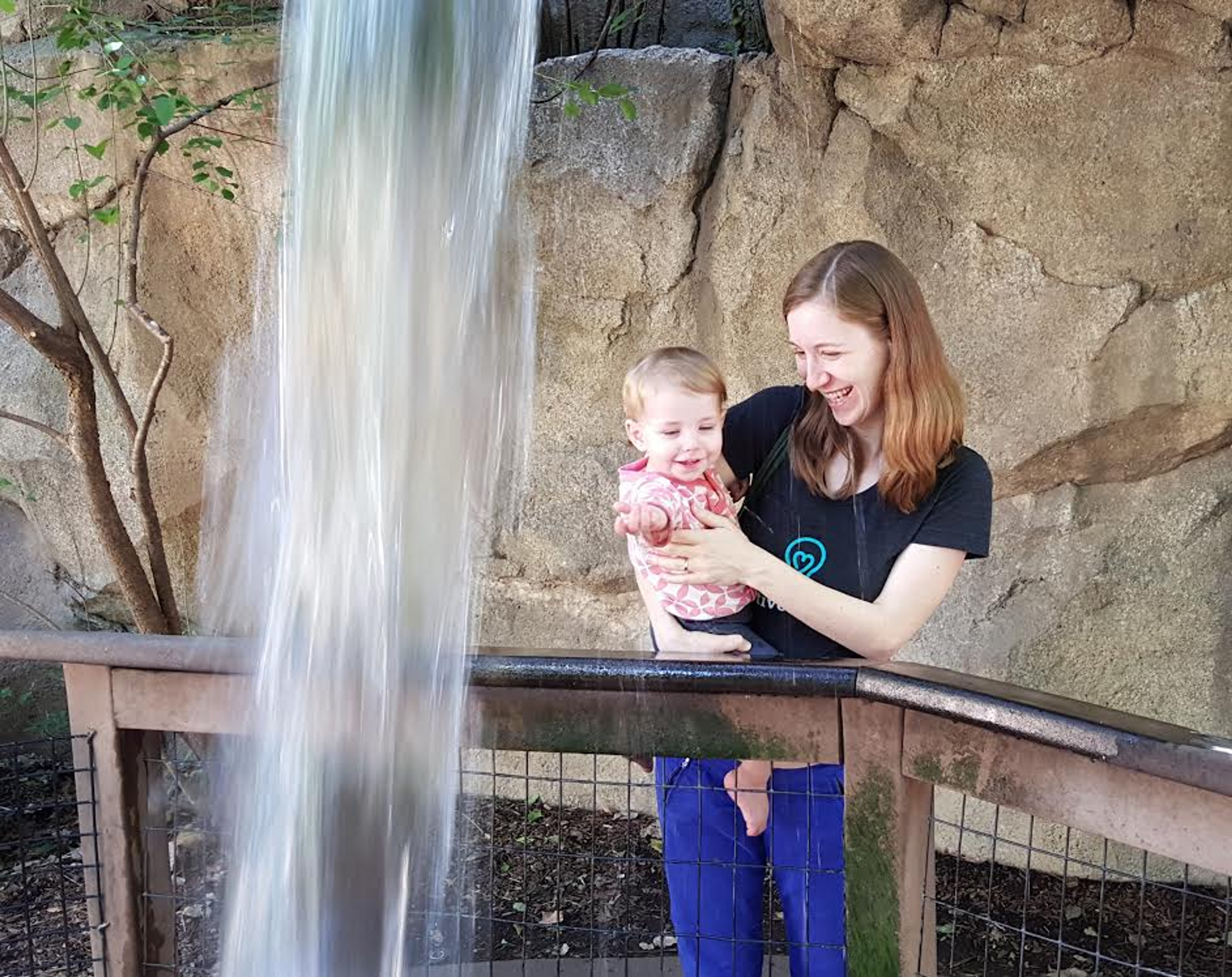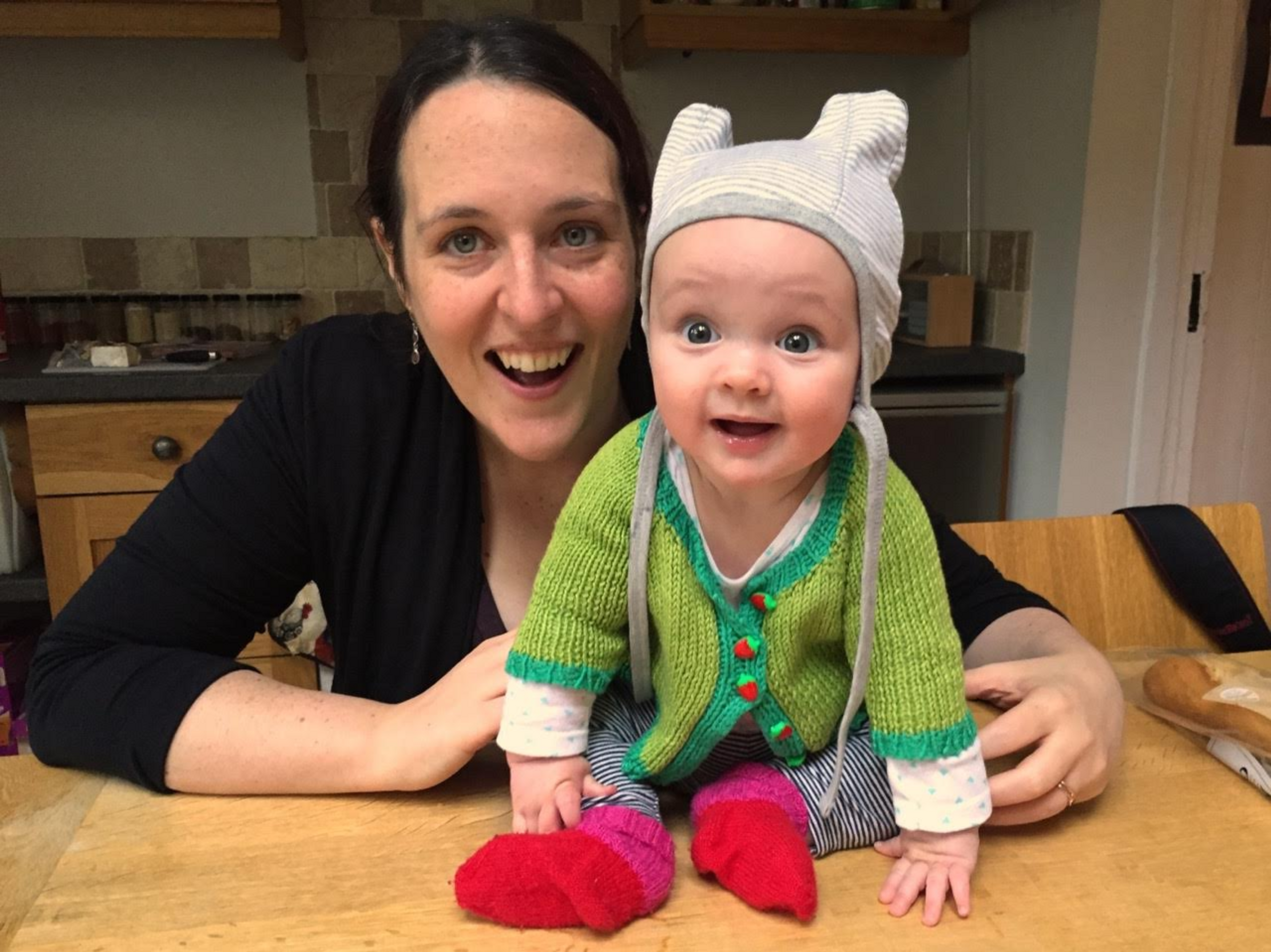Members’ experiences talking about Giving What We Can
Sometimes it can seem difficult to have conversations about Giving What We Can - where do you begin and how can you make sure you don’t come across as self-promoting? To help with this, some of our members have shared their experiences of discussing Giving What We Can and effective altruism.
Starting the conversation
Catherine’s experience

“I find that the more effective altruism activities I do, the more opportunities I get to talk about it. I normally try to mention it casually - e.g. when a friend or family member asks me what I have been up to I can say that I went to a talk, or was working on some volunteer tasks. Sometimes people then ask questions, and if the conversation leads on from there, then I can explain a bit more about it.
Another place that it comes up is when eating with others. Since becoming more familiar with effective altruism I have cut out animal products from my diet. When people ask why it gives me an opportunity to say the ways I am trying to reduce suffering on Earth in several ways.”
Avoiding coming across as preachy or boastful
Dominic’s experience

“Many of us feel like we have some sort of responsibility to alleviate poverty; some of us are even radical about this in our young days. But, in some way or another, for most of us, the determination to do something big about poverty gets lost in the hustle & bustle of everyday life and in the challenges of finding a job, founding a family, etc. By committing now to give 10% for the rest of my life, I get a guarantee: I get the guarantee that I will be able to look back on my life and know that I will have at least done something. Maybe it's not much, but by making such a commitment, the fear that I will have ultimately failed to leave even a minimal footprint (in terms of poverty eradication) can be put at rest.”
Catherine’s experience
“I am a bit concerned that I can come across all holier-than-thou when talking about giving. One thing I sometimes mention is the research on normalising giving, and try to talk about it in a light hearted way. After I mention that I give to effective charities, I might then say “I’m not saying this to boast (well, perhaps a little bit), but the research shows that if more people talked about their giving, then it would seem more normal, and then more people would do it, so I try to do my little bit to help that”. I tend not to talk about the percentage of income, but more about how a small amount of money can make a huge impact on others. I also try to talk about the satisfaction I get from it, so it doesn’t seem I am so totally selfless.
A common concern people raise when I talk about effective charities, is whether we have more responsibilities for people suffering in our own city or country. So if I am mentioning effective charities, and Giving What We Can’s recommendations, I find it helps to preempt this by saying that GWWC believes that all people have equal value. The evidence shows that if you want to help the most people with your donation, focussing on global health and poverty is the way to go.”
Avoiding coming across as too extreme
Lloyd’s experience

“People often tell me that 10% of their income seems like a lot when I tell them about being a member of Giving What We Can. I can see why people feel that way: it can seem like a big chunk of your salary, especially if they haven’t donated before or have a family to look after. It did seem a lot to me before I started donating! I think people are often concerned that if they donate 10% they won’t have enough money to pay the bills and still do all the things they want to do – go on holiday, buy presents for their partners, etc. I try to reassure them that this is very rarely the case and that they’d still have enough money to do all the things they normally do. I often try to frame it in terms of the good the money can do: how 10% of my income can do so much more for people suffering as a result of poverty than it can for me, so that it makes sense to donate it rather than spend it on things I don’t really need or have it sit in my bank account.
Sometimes people might throw it back at you, “If it can do more for others than it can for you, why only 10%, why not more? Where do you draw the line?” I always acknowledge that it’s a good question, and something I struggle with: in fact, it's the main reason why I feel I should donate more! But I also stress that 10% gives a good marker, it’s not an insignificant amount, but is attainable and is definitely better than not donating anything. Also, if people want to donate but feel that 10% is just too much for them, they usually have good reasons, so I tell them about Try Giving and emphasise that it’s not binary, it’s not “10% or nothing”. It’s good to acknowledge that taking the pledge and donating 10% for the rest of your life is a big commitment and something you should only do when you’re ready!”
Some people are also worried about the impact that donating 10% will have on their children. Below are the experiences of some parents who have signed the pledge.
Julia’s experience

“When I think about how I want to raise my children, I want them to have everything they need, but I also don't want them to be spoiled. I want them to see that helping others is something that's important to us as a family.
Sometimes people ask if I'm raising my children differently because of my beliefs or my donation. At this point when they're young, we're essentially working on basics like sharing with other kids and feeling empathy for other people's experience. And as they're able to understand more, I hope they'll see that we apply that in our adult lives too. We care what happens to other people. Just as we care very much about our children's health and wellbeing, we care about other parents being able to provide that for their children.
But we don't try to push it on them. It's no secret within our family that we donate, but we don't plan to make our children donate or make it something they'll want to rebel against.
My partner and I get satisfaction out of knowing we're helping other families. I hope that one of the lessons our children learn about money is that you can use it not just for your own wants and needs, but to bring good things to other people. We hope they'll see that satisfaction that we experience."
Bernadette’s experience

“Having a child comes with a powerful desire to help her thrive, to give her a happy childhood. Part of that is providing material things: obviously food and shelter, but also chances to develop her talents and interests as well as educational opportunities. People have also asked if I worry about how she’ll cope with peer pressure to have the latest or the coolest things.
It’s not always easy to meet my financial commitments both to my family and donating: I keep a monthly budget, plan moderate or big purchases in advance and review my big expenses regularly. However, after meeting my pledge I’m left with something around the median income for this country. This is a useful reminder and perspective on what “everybody” has, does and needs.
I wasn’t particularly well off growing up: we didn’t always have the latest gadgets, and designer labels were not an option. However our education and opportunities to participate were always a priority, as was service to the community. In this way my family taught me really important lessons about what’s important and what’s worth a sacrifice. I hope that our daughter will also learn from our choices what we value.
Mostly, the enormous love and protectiveness I feel for my daughter has strengthened my decision to donate. There is nothing quite like the absolute preciousness and vulnerability of a child, and that is just as true of babies all over the world as it is of my baby.”
Avoiding coming across as aggressive
Hayden’s experience

“Sounding even a little bit aggressive is pretty much the worst thing you can do, and it's such an easy mistake to make. I find it quite hard to avoid - after all, you're talking about something that you obviously care about a lot and you want other people to care as well. But whenever I slip up and push a little bit too hard, then straightaway I can see the other person putting up their defenses and not being receptive to what I have to say. Their whole body language changes, they cross their arms, and they start looking for reasons to disagree with what you're saying - and, at that point, any reason will do. It becomes a competition and agreeing with you becomes tantamount to losing. This might even make them react badly again when they next hear about effective giving, so it’s worth just making sure that you’re not being confrontational.
I find that the best way to avoid being aggressive is to just chill out and not get too emotionally invested in convincing every single person. Treat conversations about effective giving as just that - conversations. Chat about the idea, and listen to what the other person has to say. If they raise valid points, voice your agreement. Even if they raise points that you don’t think are valid, try to understand what their concern is and don’t outright reject it. Smile, relax, enjoy it, and if they aren't totally convinced then don't worry about it. Quite a few people who I've talked to haven't agreed with me at first but, as long as I didn't push them too hard the first time, they've often come back later and been more open after the ideas have had time to sink in.”
It can take a while, that's okay!
Boris' experience
"In my experience, these conversations are friendly and welcome when you share your excitement about the opportunity most of us have to improve the lives of others. The feedback loop is long: conversations you have today might not result in actions until years down the line. Don’t be discouraged. I once gave a short talk in my office about charitable giving; it generated a few lively conversations that week. It’s been a year, and I still have coworkers occasionally approach me to talk about giving. It’s a topic that many people want to talk about, and finding someone who is eager to chat about it is just great."